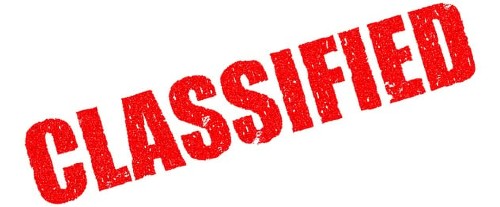
On July 21, the US National Archives made more than 250,000 pages of documents relating to the 1968 assassination of Martin Luther King, Jr. publicly available.
The records don’t include wiretap recordings, etc. taken during the years of FBI surveillance prior to his killing — those are under court seal until 2027, and the King family and others claim there’s not a whole lot of “there” there in the newly released tranche.
At the same time, however, the family and advocates claiming to represent the family’s interest in privacy — and in protecting Dr. King’s reputation — object to the release.
So … why now, all of a sudden, instead of just waiting for the 2027 unsealing of much more?
Reverend Al Sharpton hit the nail on the head in an MSNBC interview. “This is clearly a distraction …. Let me get this right: “You can bring files out that’s been under seal since ’77, that were not even supposed to be released now … but you can’t bring out files on Epstein? … anything to try to distract.”
The sole and entire reason for this release, at this moment, is to try to “change the conversation” away from inquiry into the relationship between US president Donald Trump and convicted child molester Jeffrey Epstein. That’s it. That’s all.
But that doesn’t mean the files shouldn’t have been released.
If there are false claims in the files, those claims can be contested, but the King family’s desire that their patriarch not be dishonestly insulted — or honestly shown to have not been the saint he’s been turned into over the last half-century — doesn’t outweigh the public’s interest in the life and death of a public figure.
Personally, I’m a “transparency fundamentalist” — I don’t agree that governments should be allowed to keep anything secret, ever, for so much as a minute, let alone for decades on end. They claim to work “for the public.” In what universe does the employee get to hide job-related information from the boss?
But even those who approve of “classified information,” “sealed court files,” and other tools government uses to avoid disclosure should be able to admit that keeping the public in the dark for 57 years is beyond ridiculous.
The US government still treats some information from World War 2 as “classified,” and it was only in 2011 that the last information from World War 1 was “declassified.”
The General Accounting Office claims that key documents from the 1947 “Roswell Incident,” which many believe involved the crash of an extra-terrestrial craft, are missing or could not be located.
At least two grand jury testimonies from the prosecution of Julius and Ethel Rosenberg remain sealed 72 years after their executions for espionage.
We shouldn’t allow government get away with withholding information on Epstein, King, or anything else.
Thomas L. Knapp (X: @thomaslknapp | Bluesky: @knappster.bsky.social | Mastodon: @knappster) is director and senior news analyst at the William Lloyd Garrison Center for Libertarian Advocacy Journalism (thegarrisoncenter.org). He lives and works in north central Florida.
PUBLICATION/CITATION HISTORY


